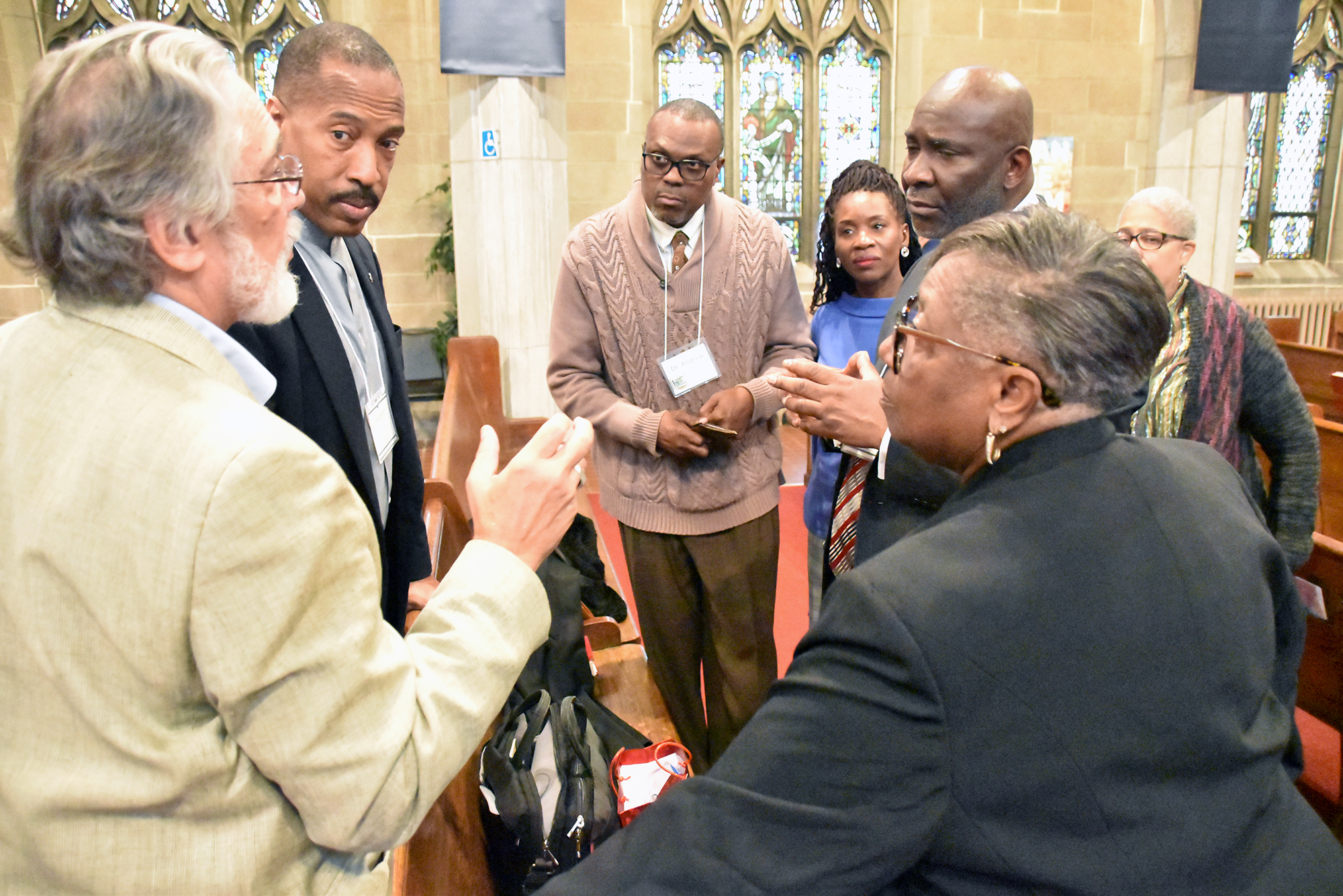
By John W. Coleman
Black United Methodists from around the Northeastern Jurisdiction (NEJ) will gather in Philadelphia on Saturday, Jan. 11, to learn and dialogue about controversial reorganization plans and proposals headed to the denomination’s pivotal, legislative General Conference 2020, May 5-15.
Historic Tindley Temple UMC (750 South Broad Street, Philadelphia), the venue of many annual sessions of the former, all-black Delaware Annual Conference in the past, will host the 9 AM to 3 PM gathering, described as a listening session and expected to draw well over 300 people.

“We as Black United Methodist leaders must be prepared and knowledgeable about the possible changes that may impact our churches,” said organizers, who have met for months to plan the meeting. Tindley Temple hosted a similar gathering in October 2018, prior to the contentious Special General Conference last February in St. Louis that heightened the controversy over rights for LGBT members rather than resolve it as intended. There, international delegates narrowly voted to sharpen rather than remove prohibitions against same-sex marriage and lesbian and gay ordained clergy.
This six-hour listening session—to be attended by primarily NEJ black members—may only allow time for gaining clarity about the various restructuring proposals and petitions going to General Conference. But planners hope to follow it with a strategic and tactical planning session soon after.
Newest UMC separation proposal to be discussed
The most recent proposal to be discussed is the Protocol of Reconciliation & Grace Through Separation, which is still to be drafted and submitted as a legislative petition to GC2020. The nine-page document was released with a FAQ document to the public Jan. 3 after months of secret, multifaceted negotiations among a diverse, 16-member group of United Methodist bishops and other leaders.
The Protocol, with its arduously negotiated, multilateral compromises, would preserve but alter The United Methodist Church in its structure, doctrine and Book of Discipline, while allowing traditionalist-minded congregations to form a new denomination. The conservative Wesleyan Covenant Association (WCA) has already begun that formation and when finished would receive $25 million in United Methodist funds, along with the ability to keep its local church properties. Another $2 million total would be allocated to other denominations that may also form in accordance with the Protocol’s stipulations.
General Conference gets the final say on if and how a likely divided UMC moves forward. But many black leaders want their constituents to have a part in that say. That feeling has historical significance because the black membership had no say when the Methodist Episcopal Church split over slavery in 1841 and little say when it reunited with a racially segregated structure in 1939. The United Methodist Church officially desegregated when it was formed in 1968, but the actual practice of segregation and discrimination proved harder to end.
Four panelists to discuss various plans, petitions
The listening session agenda will feature a morning panel discussion and afternoon question and answer session.
The Rev. Keith Boyette, of Virginia, a leader of the WCA, will discuss the new Protocol, which he signed and agreed to promote. He originally intended to interpret the Indianapolis Plan until the new, more collaborative plan emerged. Other expected speakers are:
- The Rev. Alex da Silva Souto, of New York, a leader of the UM-Forward coalition, which proposed the more progressive New Expressions Worldwide (N.E.W.) Plan that demands full, universal rights for LGBTQ members and repentance for long-term discrimination against them and against people of color.
- The Rev. Steve Tillett, of Maryland., who will discuss the Jubilee Plan, submitted by a group of black church leaders. That petition calls for debt-forgiveness, reparations and freedom for black churches that want to disaffiliate from the denomination with no penalties or payments, to organize their own denomination.
- The Rev. Dr. H. Ward Greer, of Delaware, who will explain his Moving Forward/Black Church Disaffiliation Option, also submitted as a petition to GC2020.
In addition, Wespath consultant Dale Jones will explain how the pension and health benefits agency proposes to manage, fund and pay pensions for clergy and lay employees depending on which of the various plans may be approved. And several young adult members will make a statement to the assembly about how the denomination addresses—or fails to address—their generational needs and concerns now and in the future.
Organizers of the meeting—which includes Greer and the Rev. Dennis Blackwell of New Jersey, a member of the UMC’s Judicial Council—say they primarily want to ensure that black members and churches understand the issues and their options, and have a voice in the deliberations and decisions, especially since they may soon have to decide to which denomination they will belong.
“In this season of change, the GC2020 debate should be a priority for us because the results will impact the entire connection,” said Greer and Blackwell. “We need wise, informed, prayerful leadership and participation.
Attendance at the meeting is free, although an offering will be received to help defray the cost of donated lunches. And registration is strongly urged. Persons needing to register should promptly contact the Rev. Dennis Blackwell, preferably by email at asbury.admin@gmail.com or by phone at 856-962-7802.
Much of the meeting will also be livestreamed. Access information will be announced by Friday, Jan. 10.
